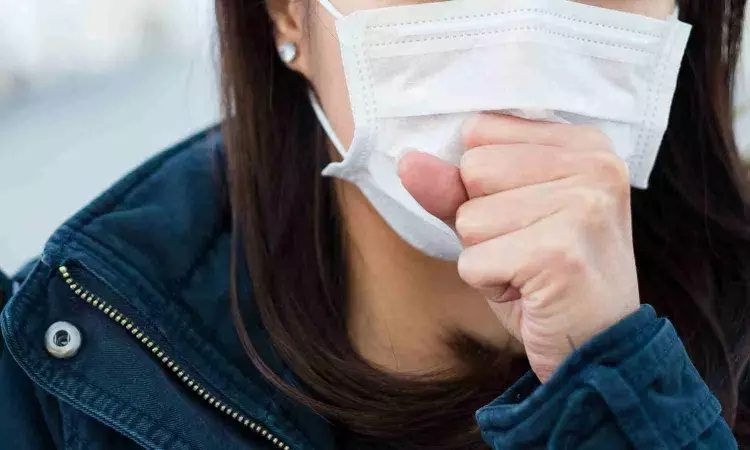- Home
- Medical news & Guidelines
- Anesthesiology
- Cardiology and CTVS
- Critical Care
- Dentistry
- Dermatology
- Diabetes and Endocrinology
- ENT
- Gastroenterology
- Medicine
- Nephrology
- Neurology
- Obstretics-Gynaecology
- Oncology
- Ophthalmology
- Orthopaedics
- Pediatrics-Neonatology
- Psychiatry
- Pulmonology
- Radiology
- Surgery
- Urology
- Laboratory Medicine
- Diet
- Nursing
- Paramedical
- Physiotherapy
- Health news
- Fact Check
- Bone Health Fact Check
- Brain Health Fact Check
- Cancer Related Fact Check
- Child Care Fact Check
- Dental and oral health fact check
- Diabetes and metabolic health fact check
- Diet and Nutrition Fact Check
- Eye and ENT Care Fact Check
- Fitness fact check
- Gut health fact check
- Heart health fact check
- Kidney health fact check
- Medical education fact check
- Men's health fact check
- Respiratory fact check
- Skin and hair care fact check
- Vaccine and Immunization fact check
- Women's health fact check
- AYUSH
- State News
- Andaman and Nicobar Islands
- Andhra Pradesh
- Arunachal Pradesh
- Assam
- Bihar
- Chandigarh
- Chattisgarh
- Dadra and Nagar Haveli
- Daman and Diu
- Delhi
- Goa
- Gujarat
- Haryana
- Himachal Pradesh
- Jammu & Kashmir
- Jharkhand
- Karnataka
- Kerala
- Ladakh
- Lakshadweep
- Madhya Pradesh
- Maharashtra
- Manipur
- Meghalaya
- Mizoram
- Nagaland
- Odisha
- Puducherry
- Punjab
- Rajasthan
- Sikkim
- Tamil Nadu
- Telangana
- Tripura
- Uttar Pradesh
- Uttrakhand
- West Bengal
- Medical Education
- Industry
Prolonged cough? In most cases, patience is the treatment

KGMU’s Cough Centre Pioneers New Diagnostic Method
Coughing after a respiratory infection is common and, in most cases, will resolve with time, according to an article in CMAJ (Canadian Medical Association Journal).
With the recent bout of respiratory infections across Canada, many people are suffering from a postinfectious cough, or a cough that lasts for weeks after the initial infection has resolved.
"Reassuring patients that postinfectious cough is time limited and self resolving is important and can reduce unnecessary and costly prescriptions, such as asthma puffers or antibiotics," said Dr. Kevin Liang, a family physician and clinical instructor in the Department of Family Practice at the University of British Columbia, Vancouver, BC. "Most postinfectious cough symptoms will improve without medication."
Key points about postinfectious cough:
1. Postinfectious coughs are common, affecting about 11% to 25% of adults after a respiratory infection and can last up to 8 weeks.
2. Diagnosis requires an earlier respiratory infection and exclusion of other post infectious cough mimics, such as asthma and chronic obstructive pulmonary disease.
3. Check for red flags and cough duration. Symptoms such as swallowing difficulty, excessive shortness of breath, and coughing up blood may require investigation. Red flags include a history of recurrent pneumonia or an extended history of smoking, and coughs lasting longer than 8 weeks need further assessment.
4. There is no good evidence for a medication that works to stop postinfectious cough. Evidence shows little benefit with inhalers or oral medications to treat a cough. These medications can be quite costly and cause unwanted side effects as well.
5. Patient reassurance and education are critical. Clinicians should advise patients to arrange a follow-up appointment for further investigation if their cough has not resolved within 8 weeks or if new symptoms appear.
Reference:
Kevin Liang, Philip Hui and Samantha Green, Postinfectious cough in adults, Canadian Medical Association Journal, DOI: https://doi.org/10.1503/cmaj.231523.
Dr Kamal Kant Kohli-MBBS, DTCD- a chest specialist with more than 30 years of practice and a flair for writing clinical articles, Dr Kamal Kant Kohli joined Medical Dialogues as a Chief Editor of Medical News. Besides writing articles, as an editor, he proofreads and verifies all the medical content published on Medical Dialogues including those coming from journals, studies,medical conferences,guidelines etc. Email: drkohli@medicaldialogues.in. Contact no. 011-43720751


